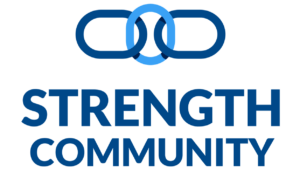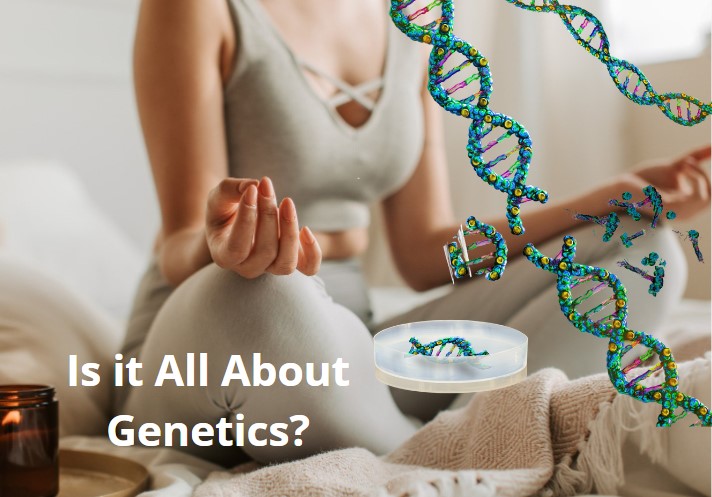Is it All About Genetics?
The Role of Genetics in Health
Genes often get blamed for causing disorders within the body, which, unfortunately, is something that affects millions of people worldwide. We often point to "bad genes" as the culprit when we aren’t happy with what’s happening inside our bodies.
Are genetics really the culprit, or have they become the fall guy?
The idea that genes control our biology and outcomes is a long-standing belief but has never been conclusively proven. This confusion stems from mixing up correlation (genes being linked to disease) with causation (genes being the cause of disease). In reality, our genes respond to environmental signals, which play a crucial role in health.
Understanding Epigenetics
Epigenetics (meaning “in addition to genetics” or “above genetics ”) refers to factors other than DNA that influence an organism.
Environmental factors such as stress, diet, and lifestyle play significant roles in how organisms, including humans, respond to an external stimulus at the cellular level. Both genetics (nature) and environmental factors (nurture) have a role to play.
Lifestyle Conditions and Environmental Factors
It is becoming more evident that many disorders today are lifestyle conditions, and changes in diet, exercise, and mental health practices can reverse these problems.
Studies show that most diseases, including cancer and cardiovascular conditions, are not purely genetic.
This already emphasizes the importance of environmental factors over our health.
In fact, there have been links to factors such as heavy metals, pesticides, tobacco smoke, and even a lack of nutrients causing these epigenetic changes.
How Genes Respond to Environmental Signals
Certain genes can either be turned on or off, depending on the signal given.
Each cell's membrane plays a crucial role in determining what enters the cell. Sensor and effector proteins in the membrane respond to various external signals, including biochemical, mechanical, and even thought processes.
This means that genes do not control their own activity; instead, the cell membrane and environmental factors do. Just like the brain processes external inputs, the cell membrane processes environmental signals, influencing the cell's and the organism's behavior.
What you think about matters!
It starts a cascade of actions and programs that get engrained into the body, and a code is generated, put simply.
Luckily, this can be re-wired which we will talk about towards the end of the article.
Ancient Philosophies and Modern Research
In fact, the idea of epigenetics and the mind-body connection isn't new to many philosophical systems like Ayurveda and yoga.
Now, modern research is finally starting to catch up and support the claims that good mind-body practices and environmental hygiene, as outlined in the Yoga Sutras, can manage and even help to prevent many disorders.
Epigenetic Processes
Epigenetics involves processes like methylation and acetylation that alter gene activity without changing the DNA sequence. These changes can be passed to daughter cells but can sometimes be reversed. DNA methylation, the addition of a methyl group to DNA, is a well-known epigenetic process linked to various diseases.
Methylation reactions are essential to human metabolism. And therefore, health. Examples include cellular detoxification, neurotransmitter synthesis, cell growth, tissue repair, and gene expression. If, for whatever reason, the body isn’t able to methylate correctly or is overloaded with stressful external stimuli to process or detoxify from, health problems aren’t too far away.
Generational Epigenetic Changes
Recent studies also suggest that some epigenetic changes may persist across generations.
For instance, exposure to certain pesticides in pregnant rats led to changes in DNA methylation that affected several subsequent generations. Therefore, it’s important to think several generations back and to focus on what you can do now for your future offspring.
Focus on Your Health
This brings us to the final point: your health. Do you know where you are storing body fat and why?
As we have uncovered, there is much more at play than an outdated thermodynamic equation. Our metabolic balance course will provide you with an in-depth understanding of what is happening inside the body and what to do about it.
We use a precise system based on solid scientific and clinical research to ascertain your current hormonal profile and provide you with the tools to change and improve it drastically. Accurate and up-to-date information on nutrition and supplementation that needs to be prescribed to you individually is a huge key not to miss out on when trying to transform yourself or a client.
To know and not to do is not to know. Now, you have read an article giving you the brief on your body, but what you do about it is what will determine your own outcome.
Strength Community Team
Reviewed by Carlos Castro

